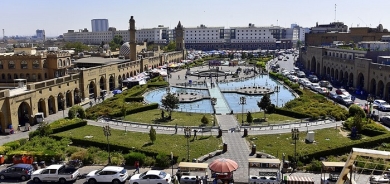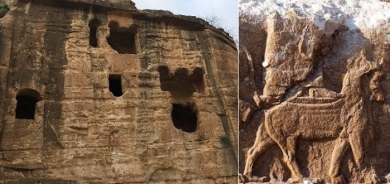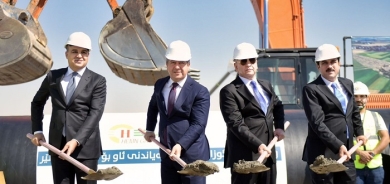Surveys suggest corruption a serious problem

Survey reveals little trust in boards formed to expose corruption
Seventy-five percent of the population believe that government is unable to investigate violations committedby government officials.
According to the latest survey on corruption and government monitoring and reforms, Kurdistan Region's citizens express their concerns about the government's inability and negligence to follow up and investigate violations and corruption by officials.The study was conducted by the Kurdistan Development Corporation (KDC) in cooperation with the Center for International Private Enterprise (CIPE), an American organization.
The survey consisted of 46 questions about the issues of transparency, corruption and integrity;residents from neighborhoods in Suleimaniya and Erbil were surveyed.
The study suggests that people are not optimistic that the government controls corruption and violations by the high-ranking officials.
According to the survey, 75 percent of those interviewed believe that authorities cannot investigate employees and directors of government institutions, and 82 percent are confident that officials and their sons are not penalized for violations they commit.
According to the democratic governance principles, people can monitor the government they have elected with their own votes, and the government should also monitor the acts and performance of its employees and penalize anyone who violates the laws and regulations.
Besides the government itself, there are some other institutions that can monitor government officials' violations and investigate in this respect. Parliament in general and its Integrity Committee and Integrity Board in particular, and the Financial Audit Bureau and General Prosecution have the authority and responsibility to monitor government actions.
But Dr. Dana SaeedSofi, a member of Kurdistan Region's Parliament and Chairman of Civil Society Committee, believes that the Financial Audit Bureau is paralyzed and cannot perform its assigned duties. Kurdistan used to have two Financial Audit Bureaus during the double administration period, but after the unification, the two bureaus merged.
The results of the survey suggest that 73 percentthink the audit, monitoring and investigation processes in the KRG are very weak, while only 11 percent think related institutions perform their duties properly.
Dr. Salahaddin Osman, an economic expert who is being consulted to analyzethe results of the study, argued that Kurdistan does not suffer from lack of laws, but the issue is lack of law enforcement. ??the more serious issue is that no one is questioned about why the laws are not followed and enforced,? stated Dr. Osman.
"Till now, audit authorities have asked about how much has been spent, but not how far it has been effective in achieving the targeted objectives or how far have you reached with your plan," argued Dr. Osman. "Worse than those is that most of the ministries do not have a plan or strategy yet."
MP Saeed believes that the reason behind the ineffectiveness of the audit and follow-up institutions is mainly due to the rivalry among political parties. In a ?Globe? interview, the MP stated: "When a high-ranking government official commits a violation and is being questioned, it is perceived like addressing his party and, the issue turns into a political party-related issue, something that holds back the investigation process.?
The overwhelming majority of the people, reaching some 82 percent, believe that audit and investigations are neglected due to political reasons. Some 72 percent do not think that the General Prosecution is performing its duties properly.
KawaQaradakhi, an expert in Public Administration who supervised the KDC-CIPE study, spoke about the principles of transparency and monitoring and said that when someone is employed with the public sector, he or she should announce all its wealth.
"Then after a number of years, he should be questioned about his wealth again, and if it increased by more than his income, he should be questioned about the source of the surplus," arguedQaradakhi.
This is at a time when only 7 percent of the population, according to the study, believes that it is possible to force officials to announce their wealth.
Some 81 percent of people claim that the top-ranking government officials are not questioned about the source of their wealth. Moreover, 83 percent see it unlikely that normal citizens can get information about the amounts and limits of the salaries of the politicians and government officials, and 80 percent have little hope that the source of the wealth of the rich families will be investigated.
Another finding of the study is that there is a considerable degree of corruption in the government and officials use their positions for personal interests. According to the results of the survey, only 11 percent of the population believes that government posts and influences are not used for personal interests, while 74 percent think the opposite.
Dr. Osman argued that this does not only include theft andbribery, but it could also mean acts such as hiring people without thinking about the academic and professional capabilities and productivities, and doing so without considering the agriculture, industry and tourism sectors.
"Production has been neglected while it could generate large amounts of wealth and create a large number of jobs," said Dr. Osman in his ?Globe? interview. "However, for the purposes of buying votes and satisfying politicians, we hire thousands of people and have created a huge government that doesn't do anything except spend most of the budget for itself."
According to another study conducted by the International Relief Organization in 2010, one of the major factors behind corruption is economic weakness and ignoring production.
SarabDlawar, representative of the International Relief Organization, stated, ?Since we have not utilized the economic resources, unjust unemployment has increased and corruption has developed significantly."
The findings of the KDC survey also suggest that inequality in wealth distribution has brought about two social classes: a wealthy class and a huge class of poor people who have little share in the region's wealth.
Some 82 percent of the population believes that there is huge inequality between normal citizens and families of the politicians, and 70 percent believe that social relations inside the government institutions are based on personal interests.
Dlawarsaid that corruption has become a habit and something normal in society."People find it very normal to bribe officials to process their paper work, and do not think that what they are doing is wrong and illegal.?
Dr. Sofisaid that the education system has failed to develop the principle of integrity among the people."We have learned to follow the laws and regulations as long as they are in our interests, but when they are against our interests, we easily ignore them."
Only 11 percent stated that they believe the notion of patriotism still exists among citizens and government employees.All these facts suggest that people have little hope that the reform and counter corruption campaigns would be effective.
Seventy-seven percent of the people believe that those who unveil corruption acts and violations will be forced to keep silent and might face problems in their workplaces. Seventy-six percent believe that directors and managers are not active in fighting corruption in their institutions and try to shade the issue and show it as a minor problem.
According to MP Sofi, the tasks of the integrity institutions are not harmonized, which means that their effectiveness is doubted.He argues that the Integrity Committee and the Integrity Board are two complimentary institutions that should coordinate their efforts to fight corruption. However, he says, while the committee has been established, the board does not yet exist. "Moreover, the Region's higher Audit Bureau does not submit its reports to the Integrity Committee. These are reasons why the committee has failed to monitor corruption and questions violators.
Dr. Qaradakhisaid that the role corruption monitoring institutions play should be activated, a counter corruption center should be established, and those who uncover corruption should be rewarded.
He does not think that this is enough and argued that integrity and corruption-fighting courses should be incorporated into the education system so as to bring about a sincere and responsible generation.














